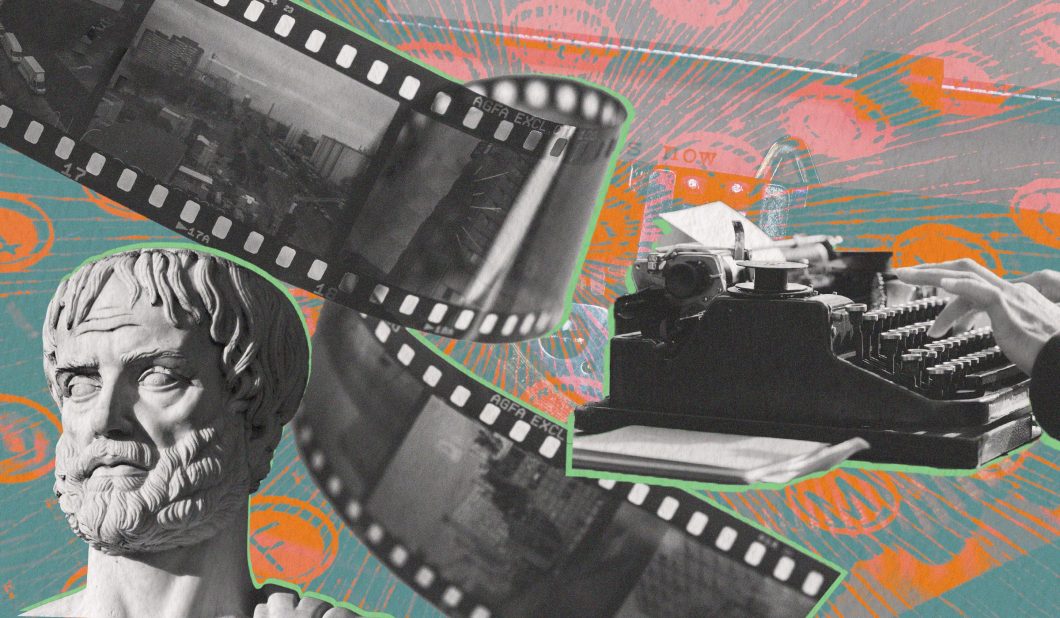Stories of Heroes and Victims
In an end-of-year news cycle centered on the mass meltdown of air travel and the arrival of a scary new Covid variant, one story from the final weeks of 2022 stood out for its feel-good vibes. With a blizzard pummeling the northeastern US at the peak of the Christmas travel rush, a group of ten South Korean tourists ended up stranded on December 23rd just outside Buffalo, New York. Luckily for them, their van broke down in front of a house occupied by two hospitable strangers with room to spare and a well-stocked pantry (the resident couple, a pair of culinary adventurers, even had mirin and sesame oil!). And so, the stranded travelers along with their gracious hosts feasted, partied, and sparked a beautiful friendship while the snow fell outside.
This is the stuff that wholesome holiday content is made of. But when this story came across my Twitter feed, things took a dark turn in the third response down:
“Thank goodness it wasn’t in a red state,” wrote a commenter whose profile showed a middle-aged woman with shaggy, voluminous blonde hair, a freckled décolletage, and a swipe of heavy black liner along her lower lash line. “I’m sorry to have to say that but, we all know the truth about how they feel about foreigners.”
Of course, this comment was not representative of the overall response to the story. Of course, the blonde-haired woman was corrected (gently) as to the decidedly Republican bent of voters in western New York state, as well as (not so gently) her own penchant for regional stereotyping. And yet, I do think it represents something. Not just the apotheosis of a very particular personality type—the person who can always find a nit to pick, who sees a threatening aura in even the most straightforwardly positive moment—but also a prime example of what Adam Simon calls “melodramatic logic,” which turns every human interaction into a microcosmic battle between good and evil.
This logic is marked by an incredible and powerfully destructive sort of certainty: not just that the world divides into an easy binary of good guys and bad guys, but that it’s definitely our ideological opponents in the latter group.
Thank goodness you didn’t encounter one of them.
Simon argues, earnestly and persuasively, that American politics and culture have been overtaken by melodrama, and that artists have not just the potential, but perhaps the responsibility, to eschew the melodramatic agon in their storytelling, the better to guide the national narrative in a new and more nuanced direction. I say persuasively in the sense that the former idea is sadly true while the latter is a nice idea, one I would dearly like to believe in. For those of us who make movies (as Simon does) or write novels (as I do), it’s empowering and a bit exciting to imagine that a better future is being shaped by the stories we tell.
But I also wonder if Simon ultimately overestimates the influence of art and media specifically—of novels, movies, television, and news—to shape the culture of which they are a part. As he notes, culture is immersive; we’re soaking in it, all of us, all the time, and the art that bubbles up in this milieu is as much a response to the soaking solution as a determinant in its composition. Stories beget culture, yes, but culture also begets stories.
And as the intemperate blonde commenter on that feel-good Christmas story demonstrates, artists aren’t the only ones telling them. And thanks to the capacity of social media to deliver a narrative instantaneously to a virtually limitless audience, the story told by a viral tweet can entrench itself in the culture in the time it takes your average Hollywood filmmaker just to set up a single shot.
We tell ourselves stories in order to live … We look for the sermon in the suicide, for the social or moral lesson in the murder of five. We interpret what we see, select the most workable of the multiple choices.
This is a Joan Didion quote, maybe her most famous one. It describes the writerly impulse to make sense of the insensible through narrative, to “freeze the shifting phantasmagoria which is our actual experience”—and yet, this is not an impulse unique to writers. If storytelling is about finding a way to live, then surely everyone alive is doing it and must do it, as a matter of survival. The more salient question, then, is what kind of stories we tell ourselves, and how we imagine our own characters within them.
The spirit of collaboration that could animate a change on this front is increasingly lost to us in a world where we mythologize our struggles over our successes, leaving victims aplenty but heroes in short supply.
The common wisdom is that we are each the hero of our own story, but this bumper-sticker-variety truth doesn’t quite describe the state of things, currently. Our desired role in the drama has shifted. In the stories we tell ourselves now, we are equally, if not more likely, to perseverate on our suffering, to cast ourselves as the persecuted victim of this or that oppression—which creates something of a conundrum if no specific antagonist is readily available. Victimhood narratives leave us on perpetual lookout for a villain, and if no villain presents himself, we’ll cast the nearest available person in the role. You can see this most plainly on social media, where conflicts often devolve into self-identified victims begging their interlocutors to mouth the words of some imaginary bad guy.
“Just say you want to diddle kids.”
“Just say you want immunocompromised people to die.”
“Just say you hate queers.”
“Just say you hate Christians.”
“Just say the N-word, this is exhausting.”
This phenomenon knows no political boundaries; it contains multitudes. Melodrama is the nexus at which stories of self-inflicted hoax hate crimes live alongside an endless stream of Donald Trump’s tweets about the “haters and losers” who persecute him because they resent his success. It makes a grotesque of our ideological opponents and elevates the strangest people as role models. Consider our newfound celebrity faves, Harry (nee Prince) and Meghan: the royal wedding was all well and good, but it was the reality show and Harry’s accompanying memoir, in which the couple alleged themselves to have been hideously mistreated by his family, that rendered them aspirational.
And of course, it strips us of our agency, training us to see ourselves as victims. It’s not a coincidence that today’s college applicants are asked to write about a time they overcame adversity—leaving scores of overachieving, upper-middle-class teenagers no choice but to scavenge their pasts for something, anything, that might be narratively massaged into a grand struggle against oppression. Long before they begin telling themselves stories in order to live, young people learn the far more concrete lesson that you need to tell a certain kind of story to get into college.
This is the bit of Simon’s thesis that is so regrettably accurate, but also, perhaps, too far gone to be reversed. The spirit of collaboration that could animate a change on this front is increasingly lost to us in a world where we mythologize our struggles over our successes, leaving victims aplenty but heroes in short supply. Instead, each person travels the lonely path of the persecuted, occasionally forming alliances but never truly trusting anyone, let alone forming the kind of connection that might move the needle on the discourse in a healthier direction.

